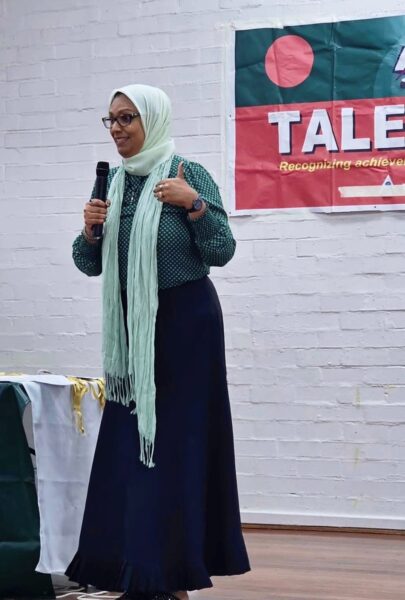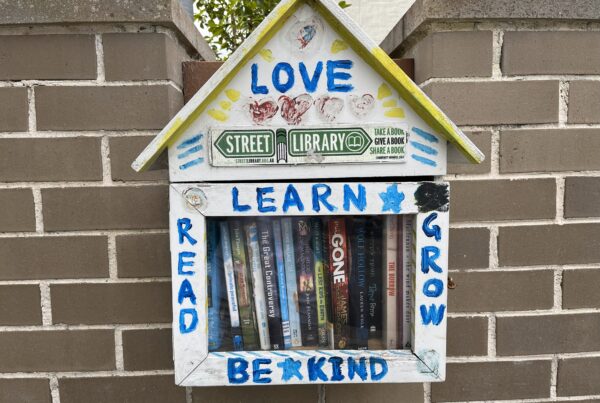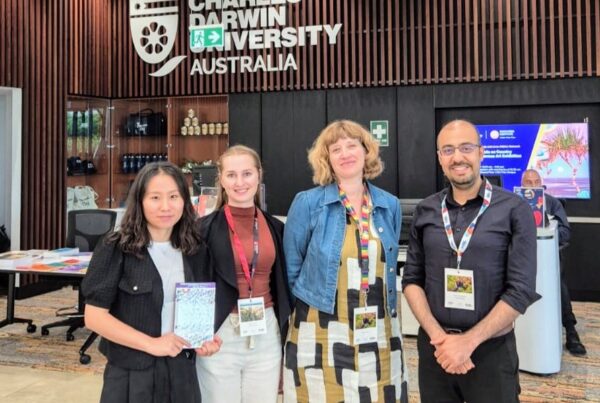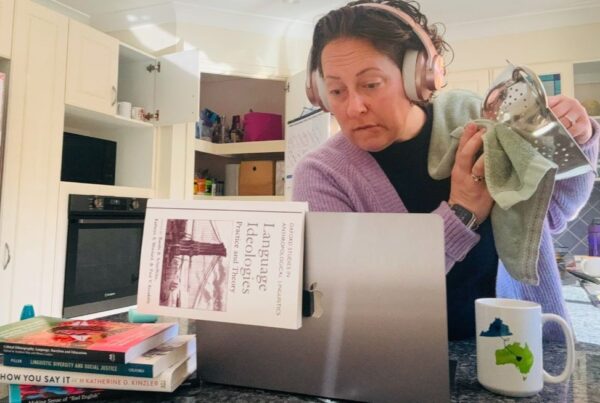
Tazin speaks at Talent Day, Bangladesh Forum for Community Engagement
Every year, the Bangladesh Forum for Community Engagement in Sydney, Australia hosts an event called ‘Talent Day’ to acknowledge the achievements of primary and high school students in the Australian-Bangladeshi community. How does this interest a sociolinguist?
In so many ways – the interaction of multiple languages, the code-switching in the speeches, the expressions of heritage and identity in language use, the living examples of language shift through generations of migrants and so much more.
This year, though, my attention was taken by a request to give a short guest speech to the HSC graduates about to embark on their university journeys. My first dilemma was determining what meaningful contribution, as a second year PhD student, I could make. Which part of my university experience could I share? I decided to talk about my PhD supervisors and share two experiences that, for me, underlined the significance of language itself.
I told them about the lecture that Dr. Loy Lising delivers on the first day of class for our students. In the process of introducing me and the other members of the teaching team, she brings up the slide about communicating with us. But before the technical details, she implores the students to remember our common humanity when communicating with teachers. She explains that the use of our shared courtesies, such as “Dear [teacher’s name]”, “could you”, “thank you” acknowledge that a student and a teacher are two human beings communicating with one another.
From Dr. Lising’s words, I extrapolated that approaching someone more learned with humility confers dignity to both the teacher and the student and if anything, reminds one of the humility that should be cultivated in the pursuit of learning.
I then spoke about my first time as a student of Distinguished Professor Ingrid Piller, when I was doing my Masters of Applied Linguistics. It was time for the final assignment and before giving us the details, she displayed an image of a Persian rug. She directed us to the intricate parts that were woven, bit by bit, to produce something so beautiful.
 Her next request was for us to write her a “beautiful” assignment. To achieve this, she asked us to remember the great privilege of higher education, which so many others have been and continue to be deprived of. We were reminded of our moral obligation to use our learning to contribute to society and the first step was to dedicate our attention to writing a good assignment – to remember the privilege of being able to write one.
Her next request was for us to write her a “beautiful” assignment. To achieve this, she asked us to remember the great privilege of higher education, which so many others have been and continue to be deprived of. We were reminded of our moral obligation to use our learning to contribute to society and the first step was to dedicate our attention to writing a good assignment – to remember the privilege of being able to write one.
I had never had an assignment presented quite like this before!
Conceptualising and expressing the act of learning as a privilege and the production of work as beautiful was yet another exercise in humility, a reminder of the very significant role that our teachers play in shaping our minds, and an acknowledgement of the purpose of higher education.
Towards the end of my speech, I realised I had given the students a series of stories and I wanted to explain why I had done this.
To be meaningful, university and higher education must be a journey of purpose, guided by our teachers and mentors who nurture our potential to contribute to the world. Ultimately, the university journey symbolises the lifelong commitment to learning from those who are more learned and passing it on to those that follow.






 This work is licensed under a
This work is licensed under a
What a beautiful reflection Tazin! Two excellent lessons and reminders for all of us
Thank you, Laura!